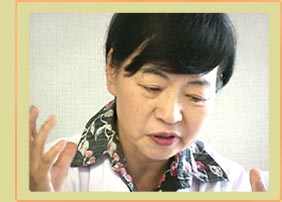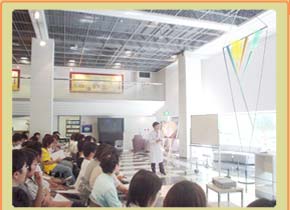 |
But I am not sure when it comes to their understanding of technology. What I think though, is that the levels of understanding can be various. It is not necessary that I understand space on the same level as a specialist. It is enough that I know about space for myself. Recently, many people have been saying that children do not show much interest in science, and that seems to be a problem. I think today's science education puts too much focus on giving everyone the same amount of knowledge. Everyone has different levels of interest, so it cannot be simplistically concluded that a decline in science is due to a decrease in knowledge or understanding, or a result of poor teaching. The same thing can be said about space development. I don't think it is efficient for both the scientific community and society at large to expect everyone to have a good understanding of all aspects of space development. In my opinion, someone should be allowed to say, "I like this project, so I'll do it," or "Let me do it." Nothing interesting or innovative can happen while everyone is working on something that could be done by just about anyone. Of course, it's possible that I am able to say this because my work does not rely on public funding. As a lot of public money is spent on space development, it is important that it contribute to national dreams. I understand that flexibility is necessary due to the growth or decline of the national budget, or to changes in the country's policies. But I truly believe that it is essential to remember what is important, and to create an environment that encourages people who are motivated. Q. JAXA has been putting efforts into educational activities as well. What are your opinions about education?
I have visited some developing countries, including some in Africa, to provide agricultural assistance, and there I came to realize that the foundations of life derive from public hygiene and education. Education is a foundation for the establishment of society; it is not something to be offered as a luxury. When we think about our society in the future, it is education we should think about first. Since the Meiji era, when Japan was formed as a nation, it has provided its citizens with a good education system. Today however, Japan seems to have lost its clear vision of the purpose of education. I think today the fundamentals of education can still be seen in agricultural high schools. These are public schools, so they cannot avoid the influence of the prefectures' severe financial shortfalls. There are already cases where some of these schools have been taken over by regular high schools. But I hope their spirit is not going to die. Every year, students at an agricultural high school in Okayama prefecture send me orchids, which they spend three years raising. They are gorgeous and very healthy. They come along with a message saying, "Please take good care of the flowers, but never too much." These words are from high school students. This is a healthy fundamental attitude for all aspects of life. This is something all parents should remember. It is quite impressive that, after three years of experience raising orchids, teenagers can come to this realization and tell others about it. They also give me advice on when to water the flowers. These students already know how to communicate with life, and that must give them confidence in their words. Here is another case I was very impressed by. One student created an improved breed of grapes, which requires less fertilizer. The motivation came from his grandfather, and he just wanted to reduce the amount of hard work grandfather had to do. In the end, the student succeeded not only in reducing the amount of work it takes to grow grapes, but also in reducing the quantity of fertilizer, and increasing safety at the same time. All this was done during his school years. This shows that the student had a different understanding of life. It wasn't enough just to memorize biological knowledge. For such an achievement, a lot of knowledge and study are required. I think that spontaneous motivation is the key, and it is very important that we create the right environment for those who have it. These stories are about biology, but the same can be applied to the field of space development. |
|
 I think an important thing is whether the context is interesting enough for everyone. Fortunately, everyone, more or less, has some kind of dream about space. So, from that aspect, I would say the first hurdle has been cleared.
I think an important thing is whether the context is interesting enough for everyone. Fortunately, everyone, more or less, has some kind of dream about space. So, from that aspect, I would say the first hurdle has been cleared.
